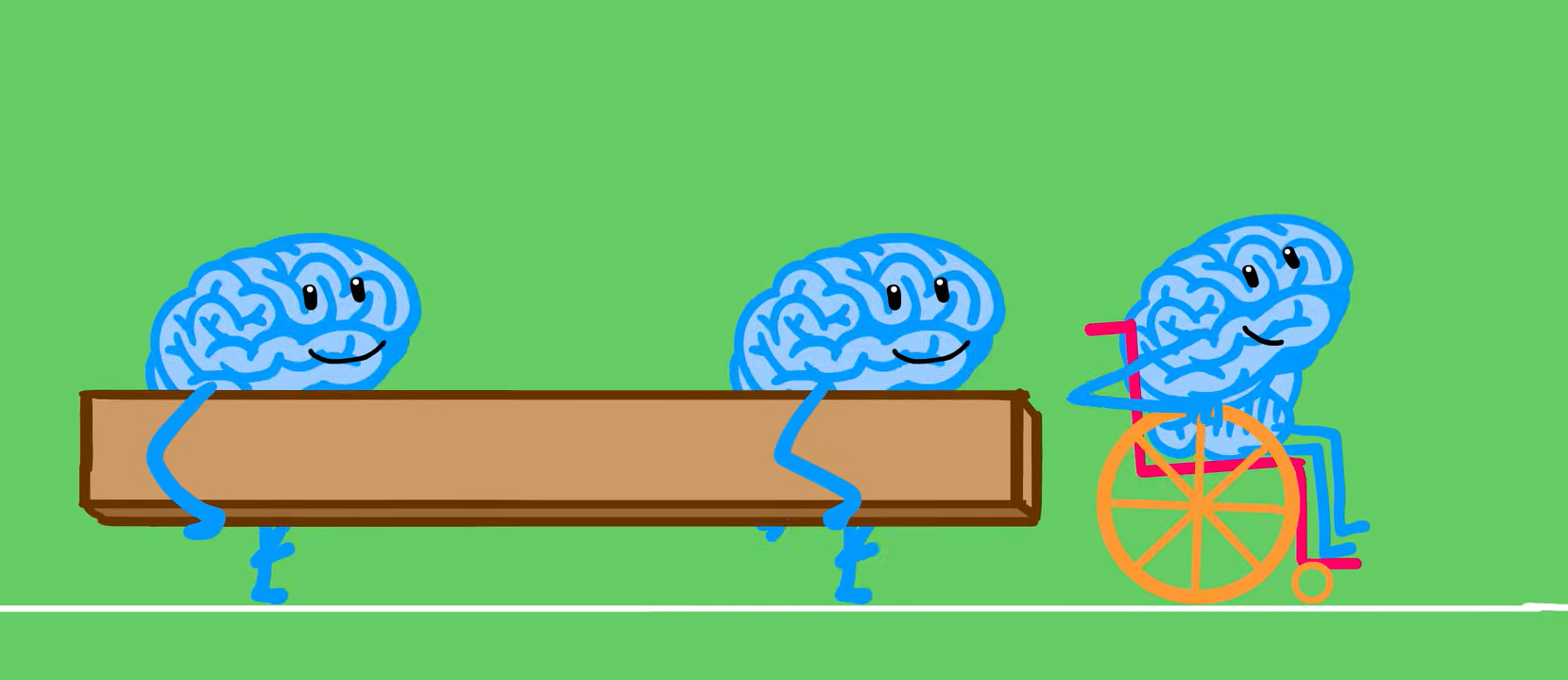Inclusive Minds: Nurturing Brain Health for All
Atlantic Fellow Eléonore Bayen explores the complex relationship between disability, inclusion, and brain health, emphasizing the pivotal role of inclusive environments in promoting cognitive well-being and social equity, as exemplified by the MyBrainRobbie initiative.
"An Inclusive World" is an educational program developed by Atlantic Fellow Eléonore Bayen (Sorbonne Université) and supported by the GBHI, the Atlantic Institute and the Région Ile-de-France. It aims to increase awareness about disability among children and the global public. Courtesy of Eléonore Bayen.
Disability is a widespread human experience affecting approximately 1.3 billion people, or about 16% of the global population. Brain-related conditions, such as traumatic brain injury or Alzheimer's disease, can lead to neurological impairments—both cognitive and motor deficits—and impede autonomy in daily activities. However, the relationship between brain dysfunction, impairments, and disability is nuanced. Disability levels relate to the interaction between physical or cognitive functioning and the environment, with factors like inaccessible buildings or negative community attitudes acting as barriers. Conversely, supportive environments can facilitate the full and effective participation of individuals with disabilities. Inclusion, defined as equal opportunity for participation, emerges as a modifiable factor influencing brain health for people with disabilities.
Inclusion: A Key Factor in Brain Health
Inclusion serves as a pivotal factor facilitating access to brain health. Consider four examples of modifiable dementia risk factors influenced by inclusion: education, chronic health conditions, physical activity, and socialization. Inclusive educational settings allow individuals with disabilities to attain higher levels of education, enhancing cognitive skills and employment opportunities. Inclusive healthcare systems provide effective treatment for chronic conditions (such as hypertension and diabetes), which can impact brain health. Inclusive sports with adapted physical activity participate to better brain health. Inclusive leisure activities enhance social interactions and well-being and reduce the risk of isolation and depression. From an economic perspective, investing in inclusion policies is essential, as they yield significant benefits in terms of improved brain health and overall quality of life.

An image from the new video, "An Inclusive World," from the MyBrainRobbie initiative. Courtesy of Eléonore Bayen.
MyBrainRobbie: Promoting Inclusion and Brain Health
Inclusion is a fundamental human right that requires understanding and support from both children and society at large. MyBrainRobbie, which I founded in 2018, aims to promote brain health and reduce social health inequalities, starting from childhood. The program consists of two educational initiatives: "A Healthy Brain" raises awareness about modifiable factors impacting brain health, while "An Inclusive World"—a newest addition to the program—focuses on disability and inclusion. Using the International Classification of Functioning, Disability, and Health model developed by the World Health Organization, the program addresses complex topics such as the role of physical environments in the disability process and the importance of empathy and societal responsibility. By fostering understanding and empathy among younger generations, MyBrainRobbie aims to create a more equitable and inclusive society for all. The program is freely available for viewing and sharing. Learn more about MyBrainRobbie.
MyBrainRobbie YouTube channel (recordings in many languages): https://www.youtube.com/@mybrainrobbie1810
Acknowledgements :
MyBrainRobbie.org has been supported by the Global Brain Health Institute, by the Alzheimer's Association and Alzheimer's society (Grant for Global Brain Health leaders). « An inclusive world » has been supported by the Global Brain Health Institute and by the Atlantic Institute (Solidarity Grant).
Authors

Eléonore Bayen, MD, PhD
Neurologist, Researcher

